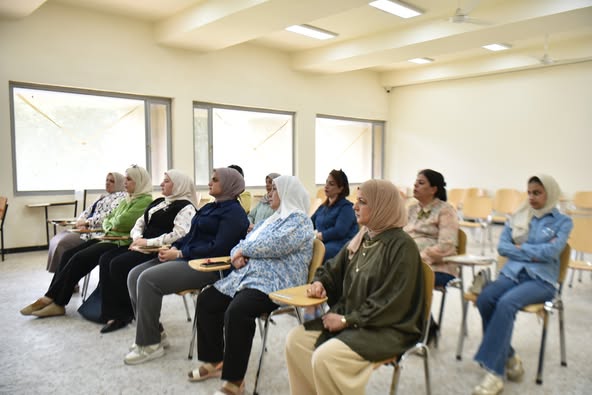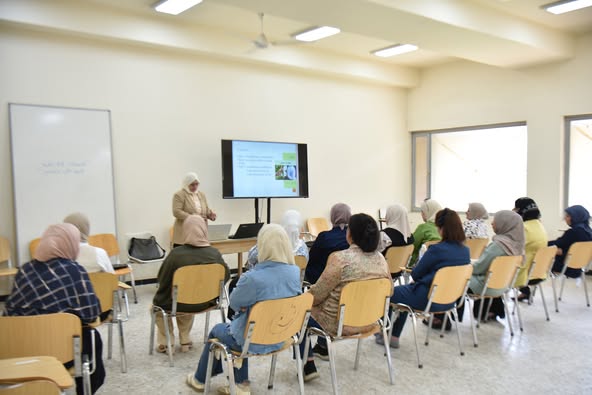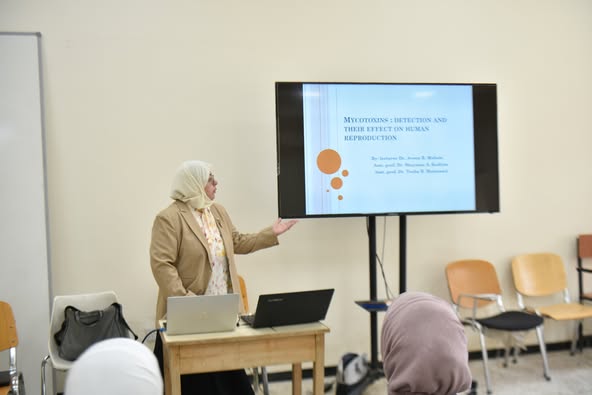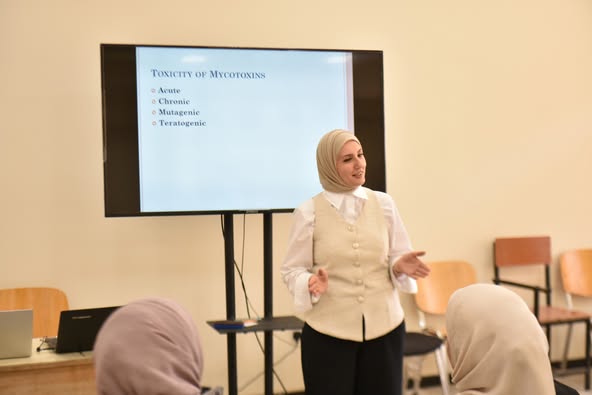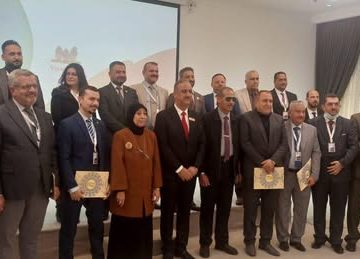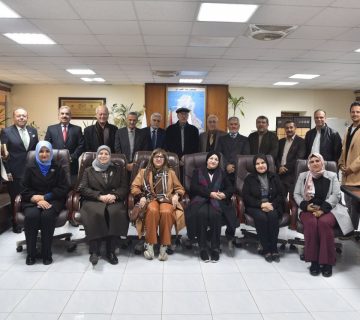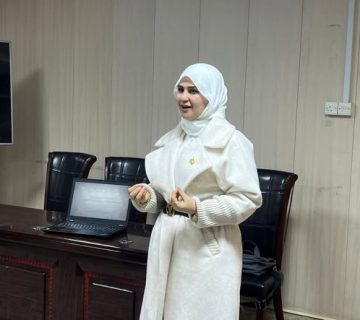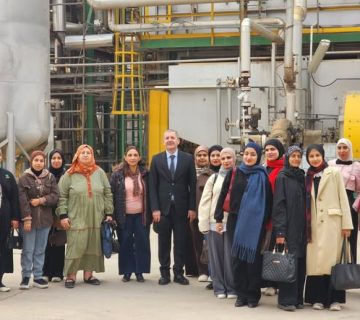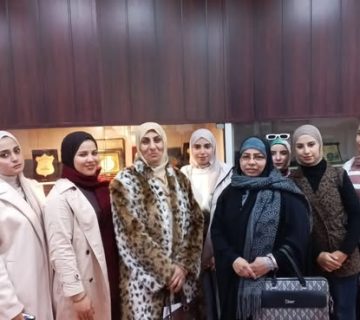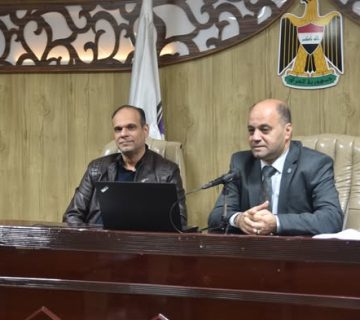Under the patronage of the Dean of the College of Science for Women, Professor Dr. Sameera Naji Khdim, the Department of Biology organized a specialized scientific course entitled “Mycotoxins: Detection and Their Effect on Human Reproduction.”
The lectures were presented by Dr. Aven Ramadan Mohsen, Dr. Shaimaa Ismail Khdim, and Dr. Tayba Hashem Mohammed, with the attendance of a number of faculty members and staff.
The course aimed to introduce fungi as eukaryotic organisms that include yeasts, molds, and macrofungi. These organisms are characterized as heterotrophic, lacking the ability to perform photosynthesis, and instead obtaining their nutrients through the absorption of organic matter in their surroundings. The course highlighted the crucial ecological role of fungi in decomposing organic materials and recycling nutrients, as well as their applications in the food and pharmaceutical industries. At the same time, it addressed the pathogenic potential of some fungi and their capacity to produce mycotoxins.
The course explored the details of mycotoxins produced by fungi when they grow in suitable environments with specific humidity, temperature, and food sources. It clarified that the production of mycotoxins is not essential for fungal growth but provides the organism with an advantage in weakening the host and creating a more favorable environment for reproduction. The lectures explained that toxin levels vary depending on environmental conditions such as humidity, temperature, and type of substrate, making the monitoring of stored food a necessity for safeguarding public health.
Furthermore, the course shed light on the adverse health effects of mycotoxins on humans, particularly on reproductive health, as they may impact fertility and hormonal balance and increase the risk of congenital malformations or pregnancy loss. The discussion also addressed the challenges faced by health and food institutions and presented strategies to reduce the spread of mycotoxins and strengthen food security.
The course concluded with a presentation of the latest scientific methods for mycotoxin detection using advanced analytical techniques, including biochemical analysis and chromatography methods, emphasizing the importance of early detection in preventing related health risks.
